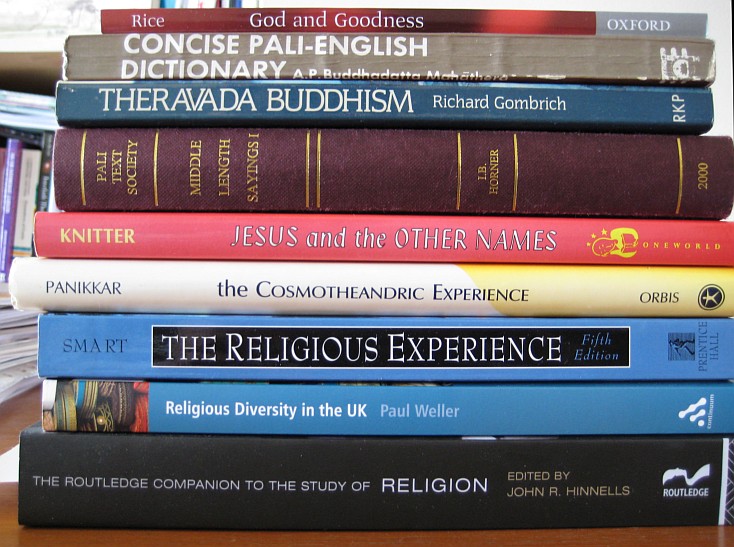I was raised in a Christian home and attended Christian schools, so religion has been woven into my entire life. For a long time though, and even at times today, I thought religion was the point of it all. The first time I heard someone say that Jesus hadn’t come to earth to create a new religion, I had to ponder it a bit. Divorcing the concept of religion from our relationship with God is a complicated process, because it’s not that religion itself, or the practices we engage in because of religion, are inherently bad or wrong. The problem comes in when religion becomes our aim instead of God--because Jesus didn’t come to bring us religion. He came to bring us himself.
 |
| Photo Credit: Flickr User Paul Trafford, Creative Commons |
When it’s wrongly understood, religion tells us there are a certain set of rules we have to follow, and if we follow them well enough, God will be happy with us and love us. The problem is, we don’t have the capability to follow the rules well enough to earn God’s love, and that’s where basing our lives on religion falls apart. It’s a game with no winners, ever.
Galatians 4:6-7 tells us how relationship with God is really supposed to be:
Because you are his sons, God sent the Spirit of his Son into our hearts, the Spirit who calls out, “Abba, Father.” So you are no longer a slave, but God’s child; and since you are his child, God has made you also an heir.
It’s not based on something we do; “God sent the Spirit of his Son into our hearts.” That’s the key right there--on our own, we’re never enough, but God says we’re already enough. We’re his children, dearly loved because of who we are and not because of what we do.
All of this is well and good; it’s certainly important to be reminded that we’re deeply valued and loved by God. But why does this really matter in our everyday lives? What difference does it make? Intellectually I know I’m loved by God and don’t need to try to meet some unattainable standard, but it doesn’t always feel that way. What can bridge the gap?
The answer is the Holy Spirit. The rituals and beliefs of religion can’t, on their own, save us or move us any closer to God. Only the Holy Spirit can do that. To break free from the idea that religion is the point instead of God, we have to believe and let the Holy Spirit do his work.
This is a difficult concept for me. For all my religious knowledge, pointing to the Holy Spirit’s actual work in my life would be a lot harder for me. There’s something about the idea of letting the Holy Spirit work in my life that unnerves me a bit, and I think it’s because I’d much prefer for the Spirit to work within the limits I put on him. A prayer as I brush my teeth, a few minutes of silence on my drive to work, a bit of Bible reading before bed, and I feel like I should be set. All of those activities tend to be rushed though, like I’m expecting God to work himself into my schedule.
When we really desire to put a relationship with God first instead of getting caught up in the rules of religion, we can’t expect the Spirit to only work through the spare snippets of time we give him in the midst of a chaotic life. It’s not that the Holy Spirit can’t or won’t work through those circumstances, because he can work anywhere and through anything, but to truly grasp the significance of our relationship with God as his children, we have to commit to dwell on it, soak it in, not rush to get to the next thing. The significance and responsibility of being a child of God can’t be crammed into the corners of our lives--it has to become a priority.
Over the next few weeks, what would it look like to set aside intentional time to dwell on our identity as children of God and to ask the Holy Spirit to meet us in that place?
[Brianna DeWitt believes in Jesus, surrounding yourself with good people, and that desserts are best when they involve chocolate and peanut butter. She writes about faith, growing up, and whatever else pops into her head on her own blog, and tweets (largely about food) at @bwitt722.]
No comments:
Post a Comment